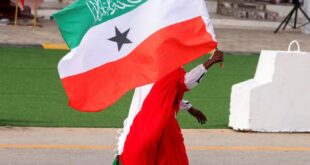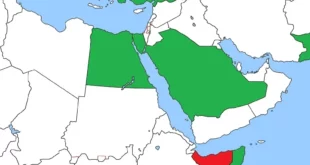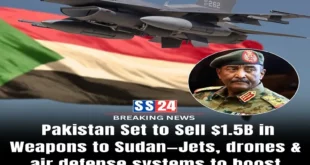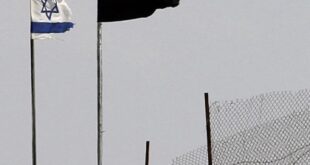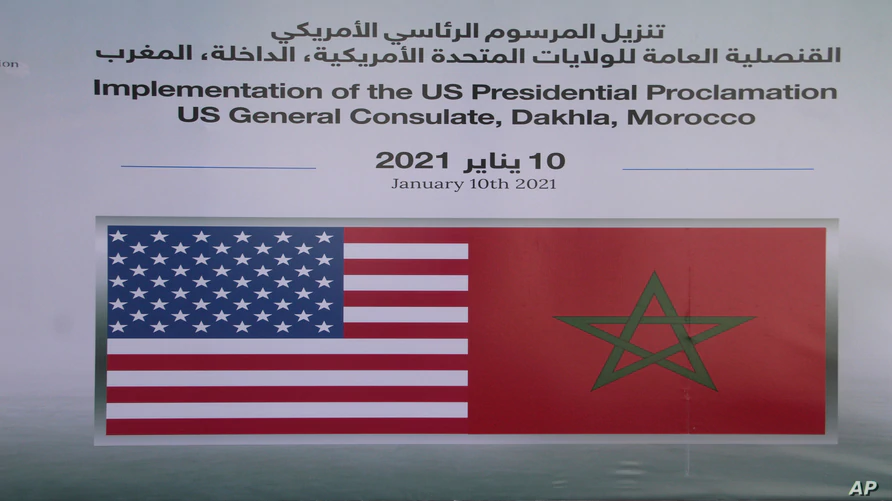
The United States on Sunday started the process of establishing a consulate in contested Western Sahara, after Washington recognized Morocco’s sovereignty there in exchange for Rabat normalizing ties with Israel.
U.S. Ambassador to Morocco David Fischer visited the port of Dakhla, 1,440 kilometers (895 miles) southwest of Rabat in the far south of Moroccan-controlled Western Sahara, to mark the start of work on a diplomatic office.
“It is such an honor for me to visit this stunningly beautiful and critically important region of Morocco, and to begin the process of establishing a U.S. diplomatic presence here,” Fischer said, according to the U.S. embassy.
Western Sahara is a disputed and divided former Spanish colony, mostly under Morocco’s control, where tensions with the pro-independence Polisario Front have simmered since the 1970s.
Last year, Morocco joined the United Arab Emirates, Bahrain and Sudan in agreeing to normalize ties with Israel under U.S.-brokered deals.
In return, U.S. President Donald Trump fulfilled a decades-old Moroccan goal by backing its contested sovereignty over the barren but phosphate-rich region, which lies next to key Atlantic fishing zones.
Foreign Minister Nasser Bourita said Sunday that “Morocco feels stronger in its legitimate fight for its territorial integrity … with the support of its friends.”
The Algerian-backed Polisario Front fought a war for independence from 1975 to 1991 and controls about one-fifth of the desert territory.
Some 20 countries, mostly African and Arab nations, have opened diplomatic offices in the Moroccan-held area, but the Polisario considers such moves to be violations of international law.
Bachir Mustapha Sayed, a representative of the Polisario’s Sahrawi Arab Democratic Republic, called the American delegation’s visit a “propaganda tourist trip” and recalled that the Trump “administration will come to an end in less than two weeks” in an interview with Algerian press agency APS.
Trade deals
U.N. peacekeepers in Western Sahara are mandated to organize a referendum on self-determination for the region and despite Washington’s move, the U.N. insists its position is unchanged.
In November, the Polisario announced it regarded a 1991 cease-fire as null and void, after Morocco sent troops into a U.N.-patrolled buffer zone to reopen a key road.
Bourita said Sunday that Morocco continues to “support the cease-fire, but will react to any provocation,” adding that Rabat “will support the U.N. process … to find a solution to this long-standing dispute.”
Fischer, who called the visit Sunday “another historic milestone in more than 200 years of friendship” between Morocco and the U.S., was accompanied by Assistant Secretary of State for Near Eastern Affairs David Schenker.
The pair donned flowing white embroidered robes that are traditionally worn in the territory over their suits.
In December, the U.S. State Department opened a virtual diplomatic post in Western Sahara ahead of finding “an appropriate site” to build a consulate.
The building is expected to be ready in the coming months, Fischer added.
Last month, Fischer said that a consulate would allow Washington “to take further advantage of Morocco’s strategic positioning as a hub for trade in Africa, Europe and the Middle East.”
The Morocco-Israel deal to normalize ties is expected to involve significant investment from the U.S. International Development Finance Corporation, and Morocco hopes Dakhla can become a major regional port.
Last month, the DFC inked a memorandum of understanding to invest $3 billion during the next four years into Morocco or with Moroccan partners working in sub-Saharan Africa.
It also promised an initiative to “catalyze $1 billion of investments in projects that advance women’s economic empowerment in the Middle East and North Africa.”
U.S. President-elect Joe Biden, who will replace Trump on January 20, has not publicly commented on Western Sahara.
 Eurasia Press & News
Eurasia Press & News
